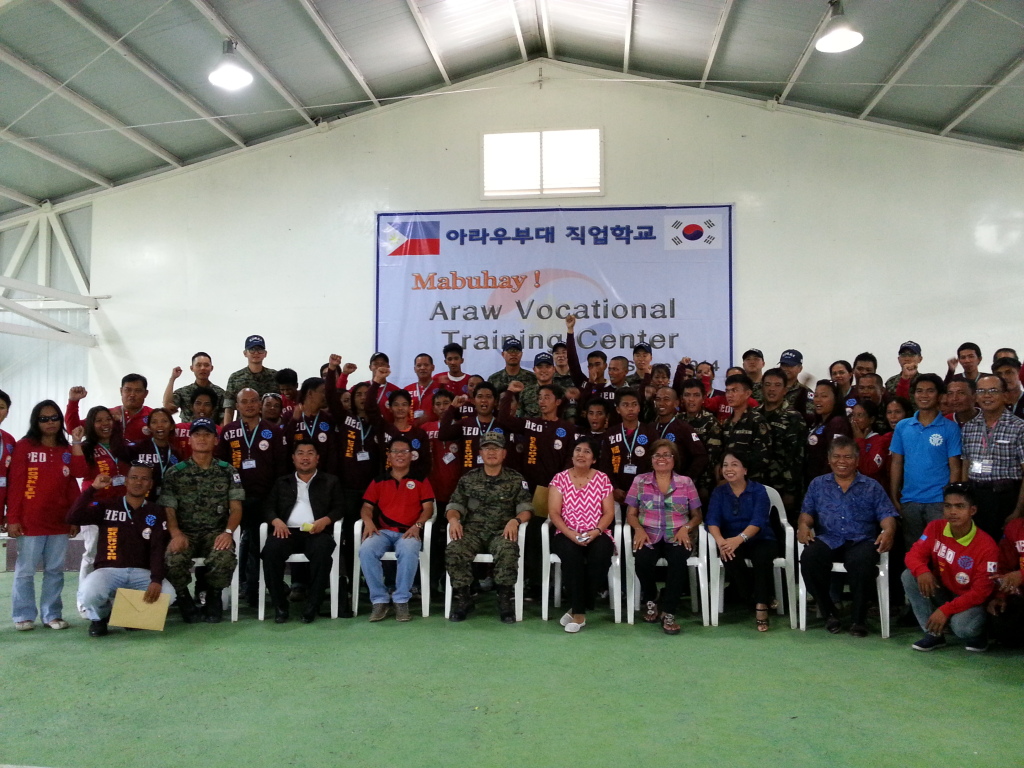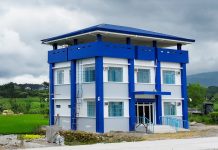
PALO, Leyte- Mylene Sabalza, 27, said that she enrolled of the heavy equipment operation training course offered by the Korean contingent to have a better future for her family. While the course is considered for men only the mother of two children said she took it anyway hoping that she could easily find job, citing that heavy equipment operator has a high demand particularly abroad.
Sabalza, who is from Tolosa town in Leyte, was just one of the 12 women who took the course offered by the South Korean Joint Support Group, known also as “Araw Forces” at their base camp located in Government Center, this town. They received their certifications on September 19. Sabalza, a computer secretarial student but failed to finish the course due to poverty, enrolled for crane operation. “At first it was hard. During the theory (class), I was very excited but when it was time for the practical training, I got scared because I don’t have knowledge in driving,” she said. “I hope that this will bring me a better future not only for me but also for my children,” Sabalza added. Her husband has no steady income of his own being only a laborer.
Technical Education Skills Development Authority Regional (TESDA) Regional Director Cleta Omega recognizes the women who finished the heavy equipment course saying that they could do what men could accomplish. But Omega admitted that finding jobs could be quite difficult as training centers produces graduates than what the market could only absorb.
Since April of this year, more than 400 individuals finished their courses sponsored by the Korean contingents with only few of them managed to find work. (ROEL T. AMAZONA)



